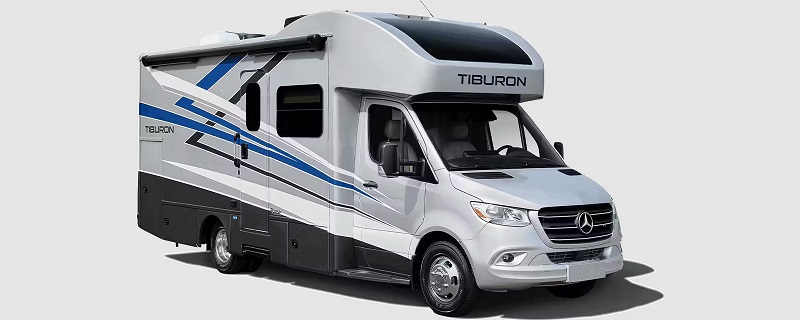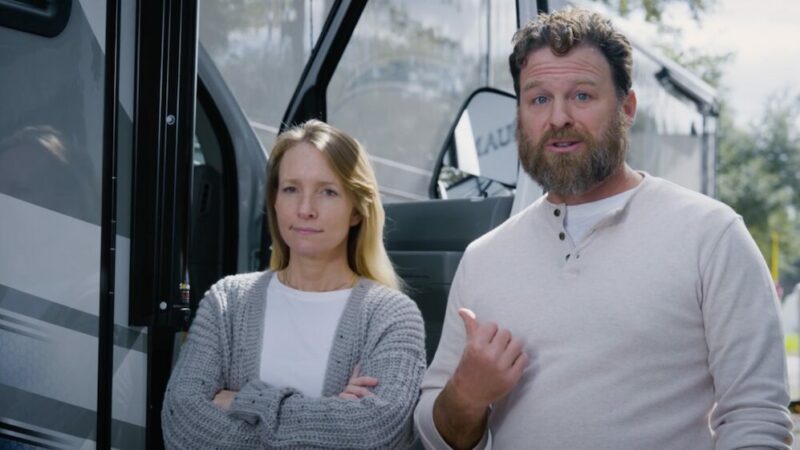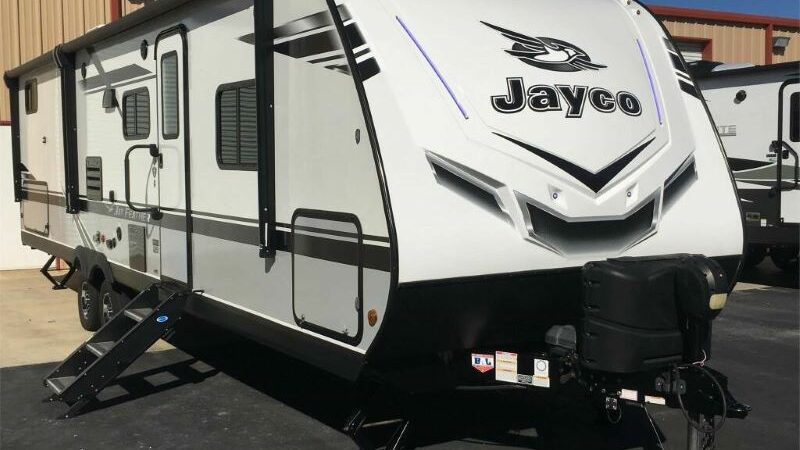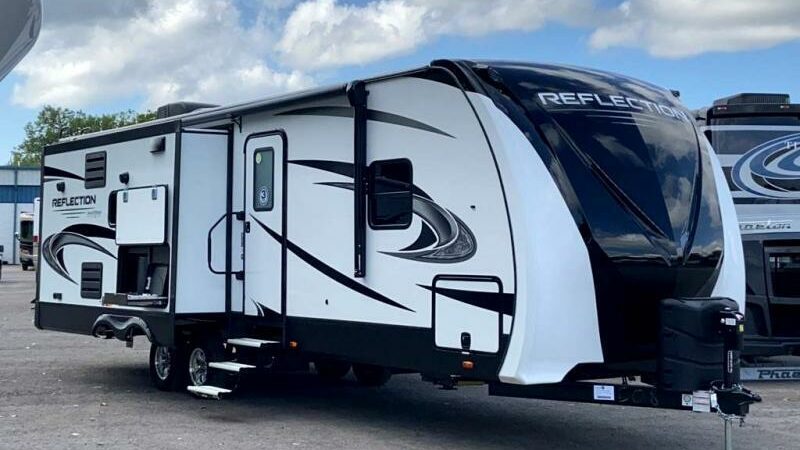Full-Time RVing: Life-Changing Or Big Mistake?
Thanks for your support! If you make a purchase using our links in this article, we may make a commission. And, as an Amazon Associate, I earn from qualifying purchases. See the full disclosure here.
With full-time RVing soaring in popularity in recent years, a significant question on many people’s minds is, could they do it? Would it be life-changing for them, or would it be the biggest mistake they’d ever make?
They’ve seen all the highlights and fun times on social media and in magazines, but what would it really be like to live in an RV? Could giving up the white-picket-fence dream really be worth it?
Deciding to uproot your life and everything you’ve ever known is a massive decision! Taking the leap to make such a significant change comes with many pros and cons.
No matter whether this is a dream you want to live out, an opportunity you’re getting because of growing remote work opportunities, or you’re feeling forced because of the costly and hostile housing market, everyone comes to their conclusion for different reasons.
Those different reasons can be a massive part of whether a full-time life is worth it for you or not in the end.
Luckily, I have some experience in this realm and would love to tell you what I know!
Is Full-Time RVing Right For You?
Deciding whether full-time RVing is suitable for you is very much based on each individual, as no two journeys in life are alike.
You could easily be the person to fall in love with full-timing and never want to go back to a traditional life again. On the flip side, you could also be the person who decides after a few months you’d rather pay triple in rent or on a mortgage than stay another second in an RV.
While you might have a concrete decision in your head on which of those two people you’ll be, this life could flip you either way once you try it.
I started as the second person, and I wanted nothing to do with living in a camper. There was such a stigma around it when we first tossed around the idea of going full-time.
I only wanted a big house with a big yard and to stay there for thirty-plus years. You couldn’t tell me any different. That American dream was exactly what we had worked for, and I wasn’t going to waiver.
But we all surprise ourselves at some point, don’t we? Now, four years later, this has been the best decision I have ever made for myself and my family. You couldn’t pay me to move back into a house.
5 Advantages Of Full-Time RVing
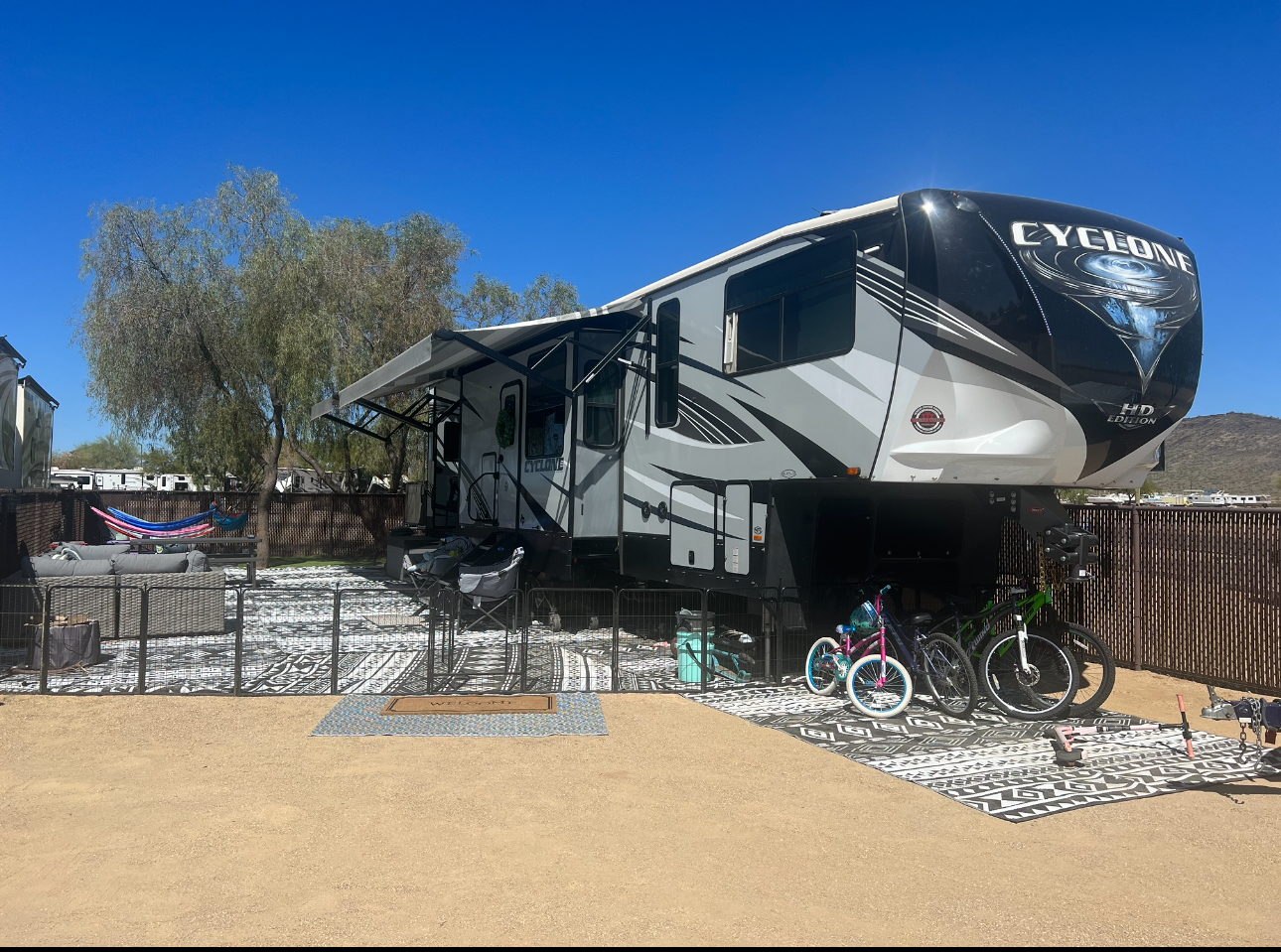
Full-time RVing has so many pros I never knew existed but with those come some serious cons as well. Weighing which means more, is a hard choice, but it’s easier to make when it’s listed in front of you.
Below are my (a seasoned full-timer) top 5 advantages of living full-time in an RV.
1. Freedom
The freedom that comes with living on the road in an RV full-time is something you just can’t get in a sticks-and-bricks lifestyle.
Being able to pack up and move daily, weekly, or monthly to see something new if you want is priceless. That in itself makes this number one on my list of advantages.
2. Job Opportunity
There are many more job opportunities available to you when your housing isn’t permanently attached to one place.
This can be remote work, allowing you to be wherever, whenever, and keep a steady job. Or, it can be a job in another city on a contract, like travel nursing or travel welding.
My husband’s career is travel welding. It’s what has allowed us to live this lifestyle for so many years and see all that we have seen.
3. New Adventures
New adventures would indeed be first on my list of big advantages of full-time RVing.
With a traditional life, most end up taking one vacation a year or every few years to the same old place. You get stuck at a comfort level and don’t step outside the box to find new adventures to explore.
Full-time RVing has taken us to places I otherwise would have never seen. Places you don’t just vacation to for fun but that give you unforgettable adventures.
4. Cultural and Regional Experiences
Gathering new cultural and regional experiences is a priceless perk to full-time RVing. Listening to and seeing people’s stories from all over is truly an eye-opening experience. You don’t get that by staying in one place your whole life.
Coming from a small town in the Midwest, I didn’t realize how life was so vastly different for others in my own country, depending on where they lived.
Traveling gives you the opportunity to see and experience how others live and broaden the way you think.
5. A New Type of Family
This made the list because it has changed my life in many ways. One thing I never expected to gain in this life was friends who turned into family.
The RVing community is a pretty tight-knit group of people. They resonate in many ways with one another over life on the road.
Though we all choose to be on our journey for different reasons, I believe our outlooks on life become close to the same.
5 Disadvantages Of Full-Time RVing
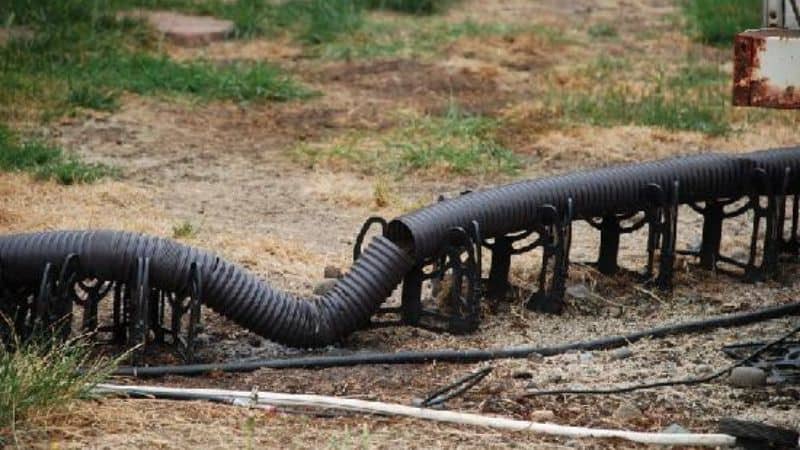
I flipped big time on my decision, but it didn’t come without its hardships. No matter how much I love it, there are always negatives to anything in life.
Below are my top 5 disadvantages of living full-time in an RV.
1. Space
A major downside to going full-time in an RV is the most obvious: size. Downsizing all your belongings to fit into an RV, which is basically the size of a storage unit, is hard.
You have to choose what you actually need and not just what you want. That’s a hard lesson for most people, as we tend to live an exorbitant, modern lifestyle.
Downsizing the sentimental things was the hardest for me. I could no longer have the boxes and boxes of my children’s baby things, pictures from my childhood, or special furniture made by my husband easily accessible.
We ended up renting a storage unit and have kept all of those things. However, not having them in your day-to-day life can be a challenging change.
2. The Cost
The cost of full-time RVing has gone up significantly in the last few years. Not only are RV’s themselves much higher priced, but the insurance, price of tow vehicles, campground/resort fees, and even maintenance have increased.
This has definitely had a significant impact on a lot of full-time RVers. It is something that should be considered before pulling the trigger on life on the road. Budgeting can quickly be thrown over the edge with a more “go with the flow” lifestyle.
3. RV Troubles
RV’s are not meant to live in full-time and aren’t built to withstand the beating they take being used 365 days a year. This invites much more opportunity for problems to arise, some of which can be pretty serious.
Over the years, we’ve owned several campers, and all of them have had some significant problems at one point or another. These problems can be costly and, most of all, inconvenient for your travels.
With a home that you can likely still live in it while it’s having repairs. RVs are different and, most of the time, have to be taken into a shop, especially for warranty repairs. This is a huge headache and can be pretty costly to find somewhere else to live for however long the repairs take.
4. Missing Family Milestones/Holidays

One significant disadvantage for many people I’ve met over the years is missing family milestones and holidays back “home.” It isn’t always feasible to run to your hometown for every major or minor life event. That can leave you feeling distant from family in more ways than just miles.
It’s good to set a boundary in advance as to what you’re schedule of visiting family is going to look like. This eases the pressure on you not to feel like you have to go back for everything.
Though, that is hard to stick to, especially as a married couple who may not have family in the same cities.
5. No Place To Call Home
When you travel full-time, you might start by renting your home out or leaving it to sit for a while until you decide whether this life is for you.
But, if you decide you like it and the time comes to sell your house and truly “move on,” you may feel like you don’t have a proper place to call home anymore.
For me, “home” will always be where I grew up. But, for my girls, who have spent nearly their entire lives on the road, what will they call home?
I think about this often, and it’s something I haven’t found an answer to yet. Hopefully, they will be part of a new generation of children who can confidently say, “Home is where my family is.”
Is Full-Time RVing Expensive?
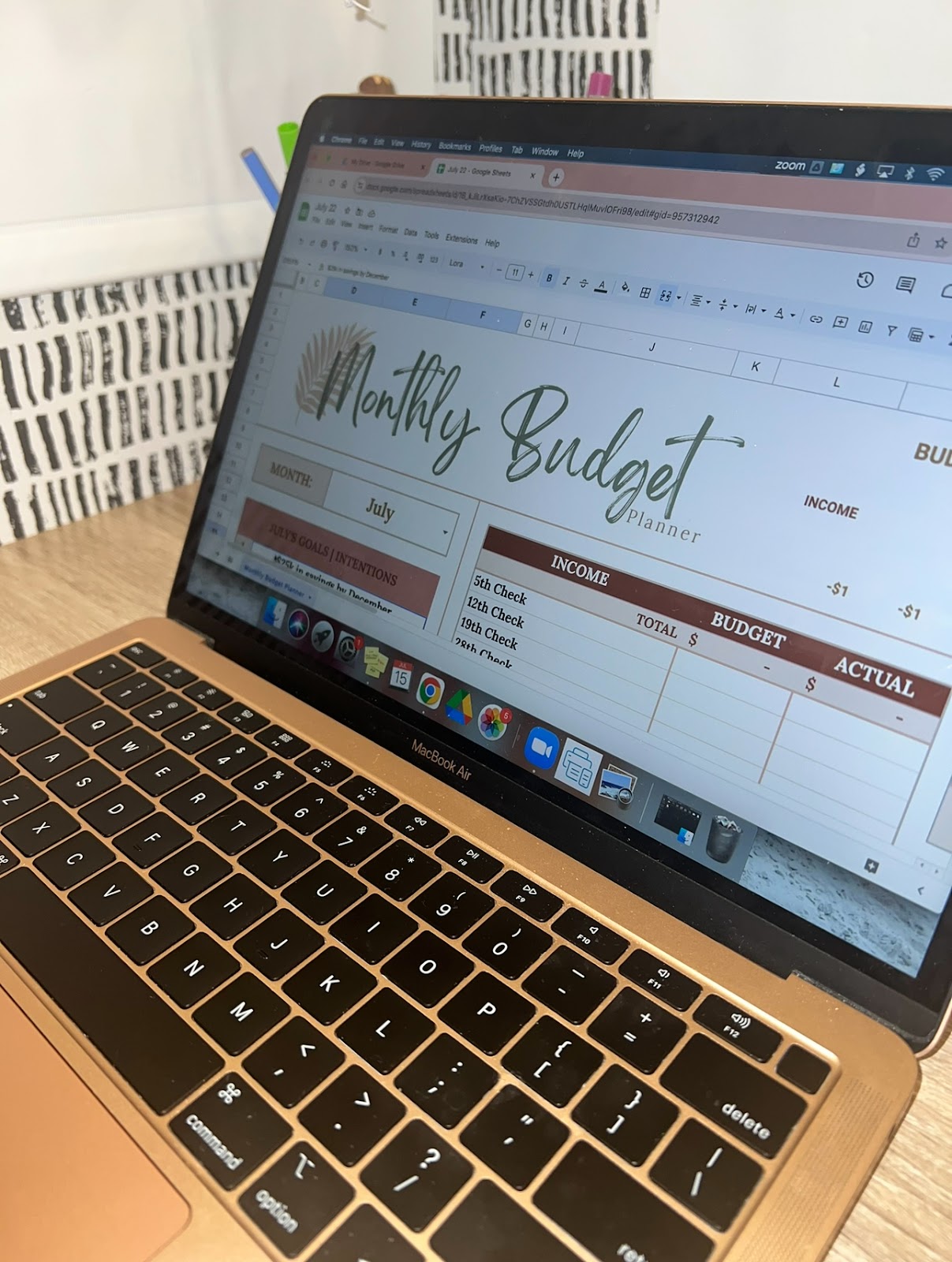
Full-time RV living can be really expensive or dirt cheap, depending on some of the choices you make.
RV Purchase Price
The first big factor in that is what type of camper you’re going to get. Some people just starting out opt for cheaper, used campers since they aren’t sure whether they’ll want to stick to the lifestyle or not.
Some may sell their homes and pay cash for their rigs and really downsize their monthly costs that way.
Others may go straight for comfort and get brand-new campers fresh off the lot with a high monthly payment.
RV prices have soared exponentially in recent years, and so have interest rates on loans for them. So, choosing a new or used camper could get your budget on the right or wrong foot right off the bat.
Campground Fees
The next most significant factor in RV living costs is the places you choose to stay. Resorts and campgrounds can get pretty costly. Especially if you’re going to be moving often or are in prevalent areas (such as Florida in the winter).
There are ways to offset that cost, though, like, for example, buying a campground membership. This will cost you quite a bit upfront, but it can really weigh out if you utilize it everywhere you go.
You can also choose to boondock for free on BLM land or private property. Another option is to find work camping gigs. These are where you get to stay at a campground or somewhere with hookups in exchange for working there.
Extra Curricular Activities
Playing into your overall budget will also include what you choose to do regarding adventures. This is where you can blow the budget.
Some places we adventure to are very outdoorsy, and there are a lot of free activities. Other places can be pretty pricey, like when you’re stuck somewhere cold and have to find paid indoor activities to do.
Also, if you’re in a larger city with many costly museums and restaurants, the budget can get blown pretty quickly!
Are RVs Made To Live In Full-Time?
Although it’s all the rage now to live in an RV full-time, they are actually not designed for full-time living. RV’s were made for recreation, which is quite literally in its name.
Since RV’s were invented for some fun, short camping trips or a season around the country, they don’t hold up very well to full-time use. When living in them as a home, the maintenance can be daunting and costly.
Some manufacturers are starting to take full-timers into more consideration now, though, when designing the rigs. They are putting fewer “cheap” products in such as cabinets and adjusting some features to be more like a home instead of somewhere you’ll only stay for a few days or weeks.
Because manufacturers are starting to make them more full-time friendly, insurance companies are changing their views as well. It used to be extremely difficult to insure an RV for full-time living.
Now, though, insurance companies are seeing the need for full-time coverage. They are offering programs such as roof replacement on newer RVs for a multitude of reasons. This takes some of the stress and financial burden of everyday wear and tear issues off of the RVers.
So, while it’s becoming easier to live in an RV full-time, and they are changing the game as far as design, they still aren’t necessarily “made” for full-time living. This is a major factor to take into consideration when making your choice to hit the road.
Can You Live In An RV In The Winter?
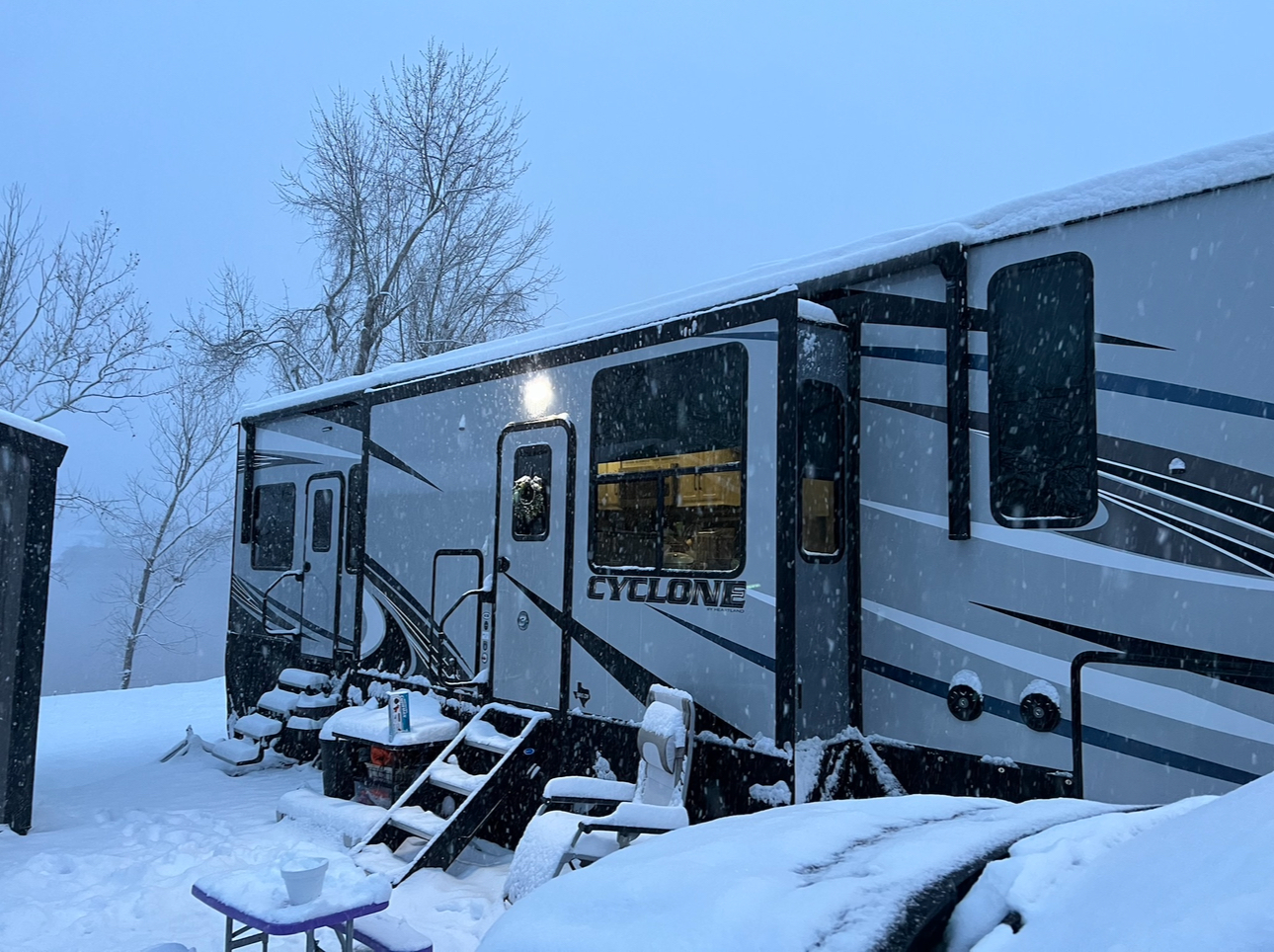
Yes, you can live in an RV in the winter, but it can be much less fun than soaking up the sun somewhere warm! With some extra preparation and care, it is doable, though.
Most people who full-time RV and have the freedom to move around tend to avoid colder areas in the wintertime. They like to forgo all the extra effort it takes to stay up and running in cold weather.
But, sometimes that isn’t always feasible due to a job. I suppose there are just some people out there who love snow and icicles on their steps, too!
Spending the winter months somewhere frigid does require thinking ahead before you ever roll out on your first adventure or even purchase an RV.
If you plan on spending some of your travels buried in snow, or even just cold temperatures, it’s wise to look for a four-season RV.
Some models with this package include things like extra insulation, a heated underbelly, and even heated tanks. These minor yet essential upgrades can help you take on the cold weather.
Here are my top 5 other things you can do yourself to beat the cold;
1. Skirting
Skirting can be done in many ways, but the most popular amongst full-timers is to have a professional company come and custom skirt your RV. They use fabric or a plastic material and adhere it to the camper with buttons or twist locks around the edge.
This type of skirting makes for easy on and off and lasts the life of your camper if done correctly.
Other options for skirting include AirSkirts, attaching foam boards with tape around the bottom, or some people who are more permanent will put up mobile home skirting around their RVs.
2. A Heated Water Hose
A heated water hose is an essential item to have if you’re wintering in the RV. Keeping your water supply moving when it is in the freezing temperatures is one of the biggest concerns next to staying warm.
A busted pipe or no water supply in the middle of winter is the last thing you want to be dealing with. Heated hoses, or at the very least a wrapped and insulated hose, can save you a lot of trouble.
3. Insulating The Windows
Most RV windows are single-pane and don’t do much for keeping out the cold. You can line the windows with Reflectix bubble insulation or use plastic shrink wrap for windows.
Insulating the windows makes a huge difference paired with your other preventative measures to stay warm.
4. A Larger Propane Tank
Getting a larger propane tank when living full-time in a colder climate can save you some cold nights and a lot of running back and forth. Speaking from experience, RV furnaces eat up a whole lot of propane in a short amount of time, especially if it’s running all day and night.
You’ll want to cut your propane usage as much as you possibly can to not only save trips but to save your wallet as well.
Another option is to rent a large tank from a propane company that comes and fills the tank for you. This can be easier than buying one you have to lug around and is sometimes a cheaper rate because you are buying so much more.
5. Space Heaters
Space heaters are not only a good way to offset your propane usage but can also keep you a lot toastier than the furnace in the RV. Furnaces in RVs tend not to put out the level of heat needed to keep you warm
If you’re in a slightly warmer yet still chilly climate, sometimes the space heaters can completely replace the RV furnaces and save your wallet big time.
As always, make sure to keep an eye on your space heaters; they can quickly become unsafe, especially in an RV. An excellent suggestion would be to find one that shuts off when tipped or overheated.
What States Are The Best For Full-Time RVers?
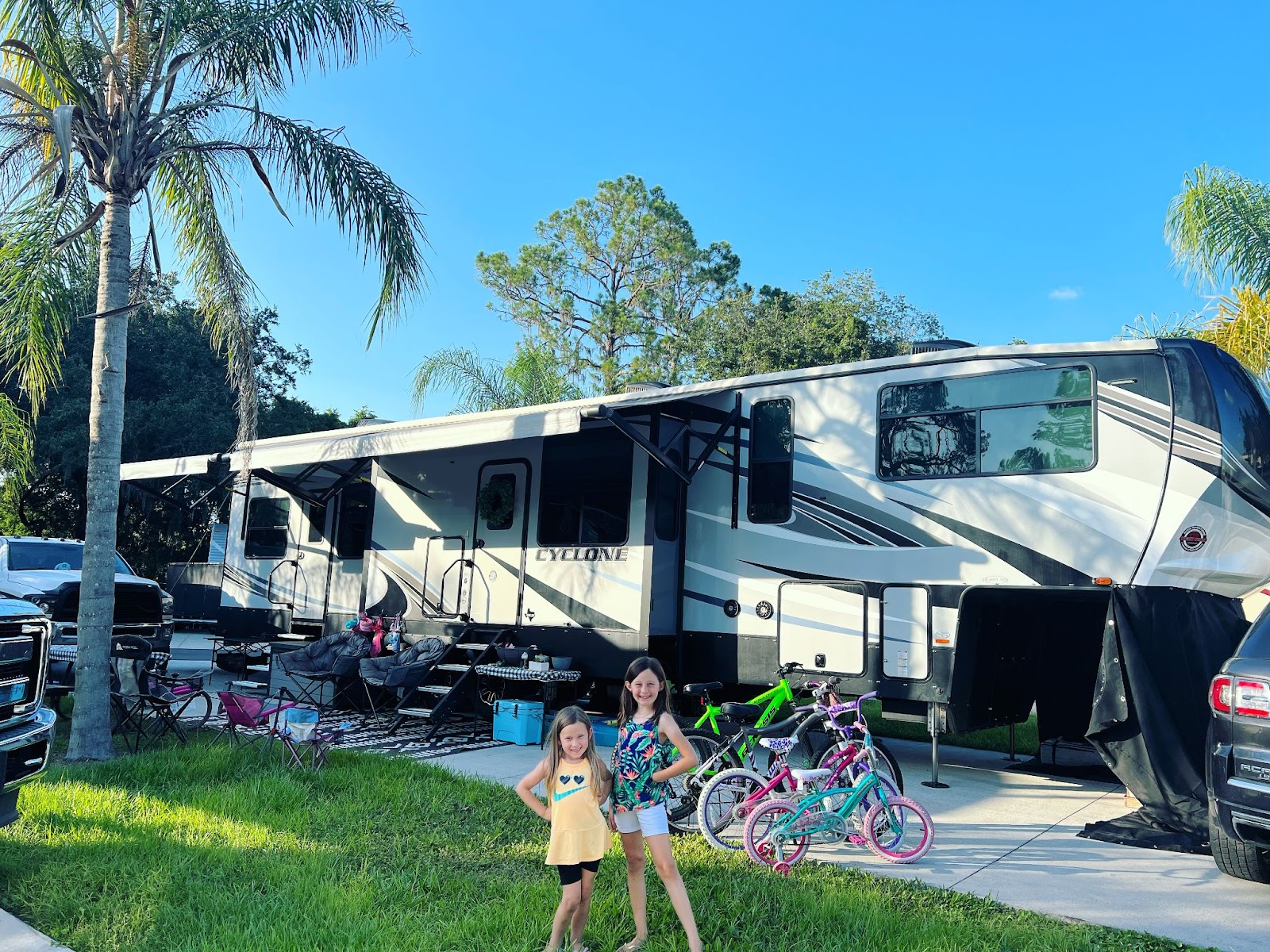
The states that are best for full-time RVers all have to do with the season you’re choosing to visit!
The best states for the winter months are southern ones like Florida, Arizona, Southern California, Georgia, and South Texas.
They are highly popular for snowbirds (I mean warm weather chasing RVers) and tend to fill up quickly. So make sure if one of these states is on your list for the winter that you book far in advance. Sometimes years, even.
Keep in mind as well these states get extremely warm in the summer months and aren’t very comfortable then, so it’s suggested to high-tail it out of there after the winter and spring seasons.
Splitting the year based on the weather is an expert idea and can give you the best of both worlds. Who wouldn’t want to live at a perfect 70-75 degrees all year round?
Final Thoughts About Full-Time RVing
Choosing to become a full-time RVer is no light decision. Researching what you can, listening to people who have or are currently living the life, and weighing your own personal pros and cons is the only way to choose.
It can be a life-changing experience for you to have, but it does come with some pretty heavy decisions.
RVing has personally changed my life for the better, and I am thankful every day that we chose to make this part of our journey. It may not last forever, and one day, I may be right back here telling you how my love for it faded.
But, like any new adventure, you can plan and plan, but until you take the leap of faith and do it, how will you ever know?
Related Reading:
– 10 Most Googled Full-Time RVing Questions
– 22 Best Tips For Full-Time Living In A Camper
– Full-Time RV Costs To Consider
– 10 Best Class A Motorhomes For Full-Timers
Carley Thompson – Author and Full Time RVer
Carley Thompson is a former teacher turned freelance copywriter, stay-at-home mom, and full-time RVer from southern Ohio. She and her husband, Steven, have been traveling the country on and off for the last decade.
Four years ago they decided to sell their house and take their two young girls, Harper and Ensley, on the road full-time. Since then, Carley and her family have visited 26 states with no plans of stopping. She loves homeschooling her girls on the road, giving them unlimited opportunities for hands-on learning.
She also enjoys hiking, spending time on any body of water, and meeting new and old friends on the road. Traveling full-time as a family has always been her dream, and she is loving it!

Source: https://rvblogger.com/blog/full-time-rving-life-changing-or-big-mistake/




